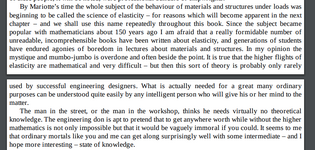Hi,
Sorry, I have a few questions. I’m still undecided as to what career I want to spend my life doing, I’ve always considered engineering as an option but I was never sure as to what specifically, but then aerospace engineering caught my eye. I plan to take a community college engineering program to see if I like it, if I do then I complete it and transfer to a decent university, but if I don’t then I’ll keep looking at other options. I’m just doing my best to figure things out. Of course, I’m just researching and asking around for now, so not 100% solid.
My question to those who are in the field: What exactly is your job position or your day-to-day basis? What are some challenges you’ve faced in that field as well as positive factors? What are some things to take into consideration? I’d love to hear about anyone’s experience even if it’s not specifically aerospace!
Have a lovely day, and thank you : )
Sorry, I have a few questions. I’m still undecided as to what career I want to spend my life doing, I’ve always considered engineering as an option but I was never sure as to what specifically, but then aerospace engineering caught my eye. I plan to take a community college engineering program to see if I like it, if I do then I complete it and transfer to a decent university, but if I don’t then I’ll keep looking at other options. I’m just doing my best to figure things out. Of course, I’m just researching and asking around for now, so not 100% solid.
My question to those who are in the field: What exactly is your job position or your day-to-day basis? What are some challenges you’ve faced in that field as well as positive factors? What are some things to take into consideration? I’d love to hear about anyone’s experience even if it’s not specifically aerospace!
Have a lovely day, and thank you : )

